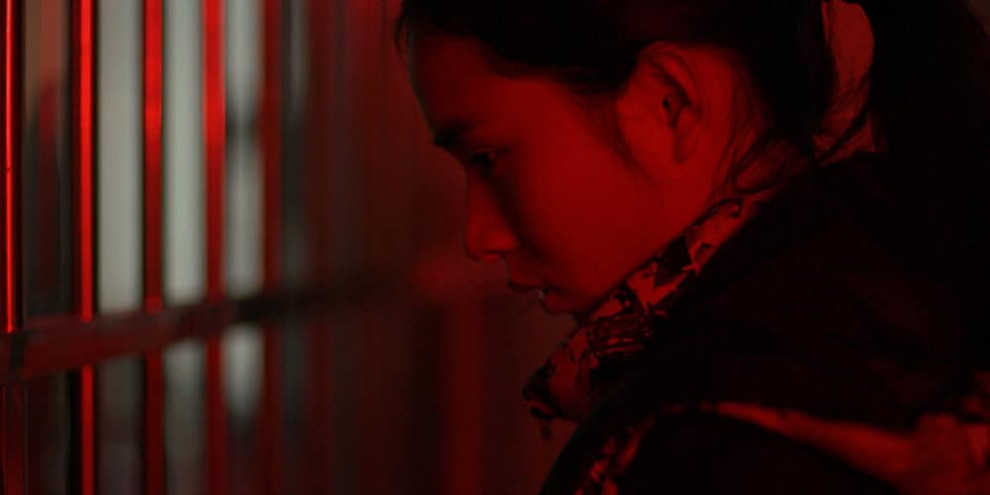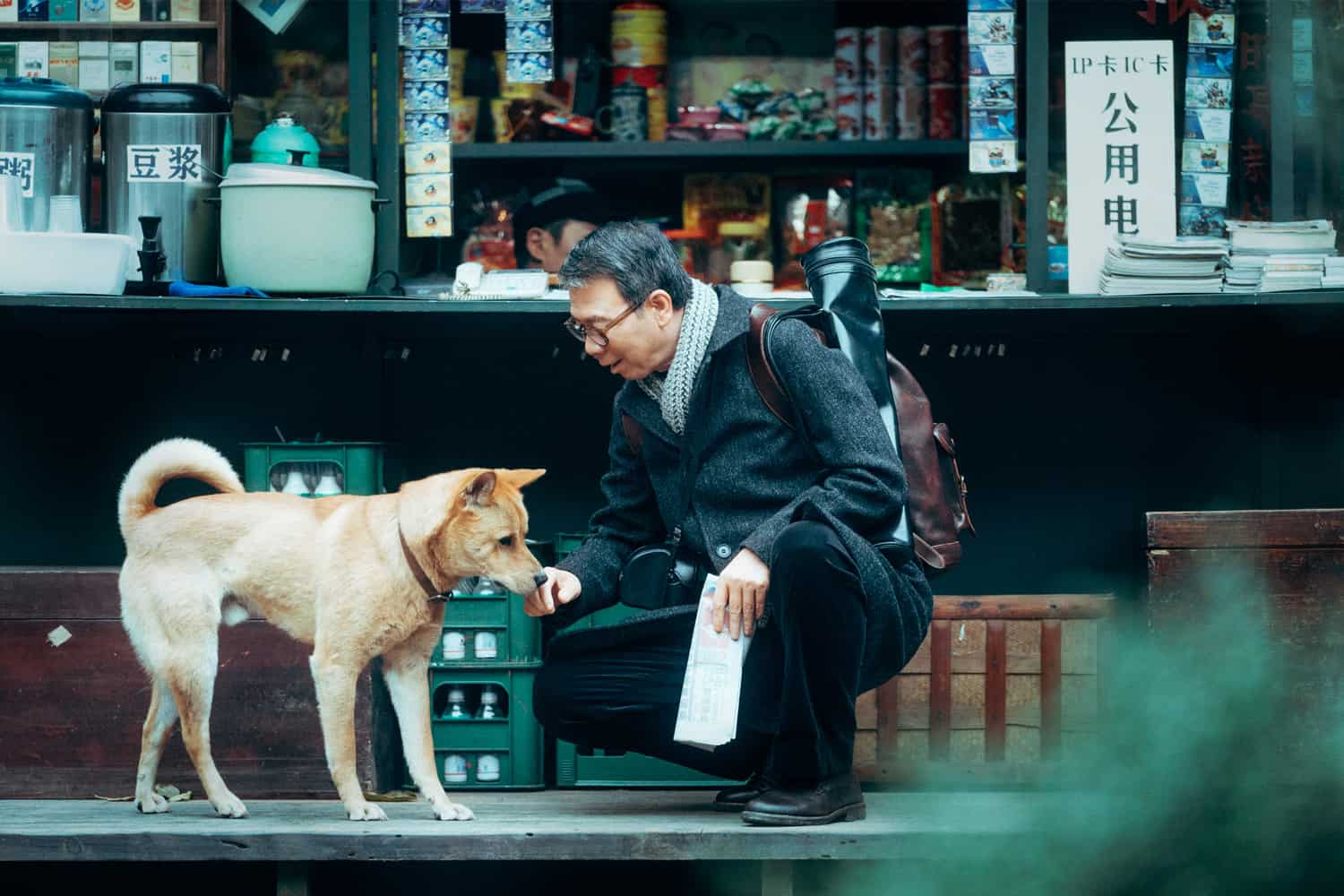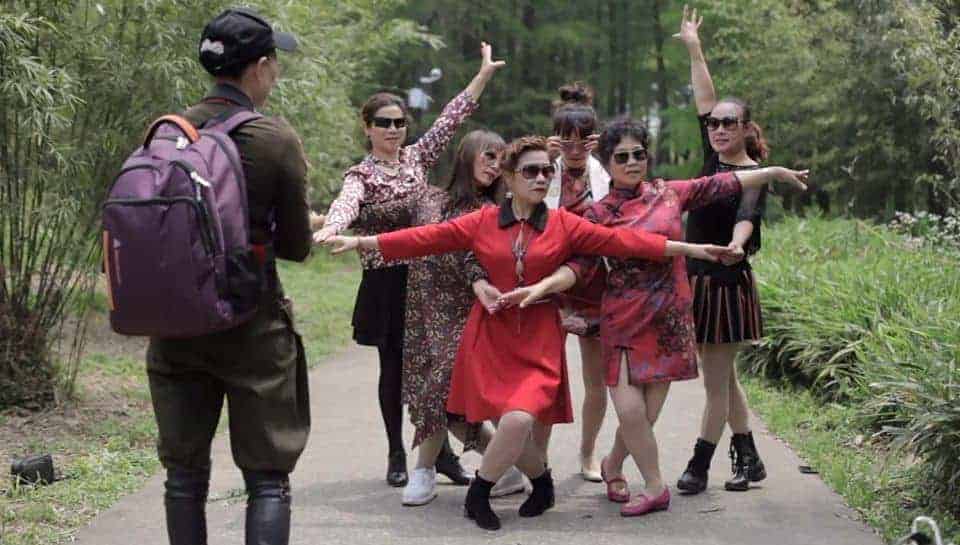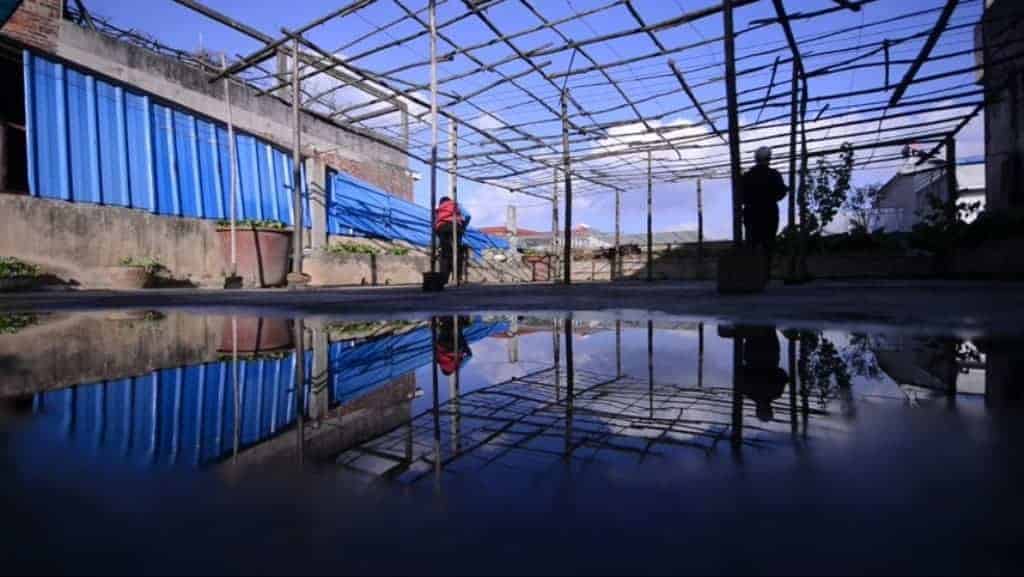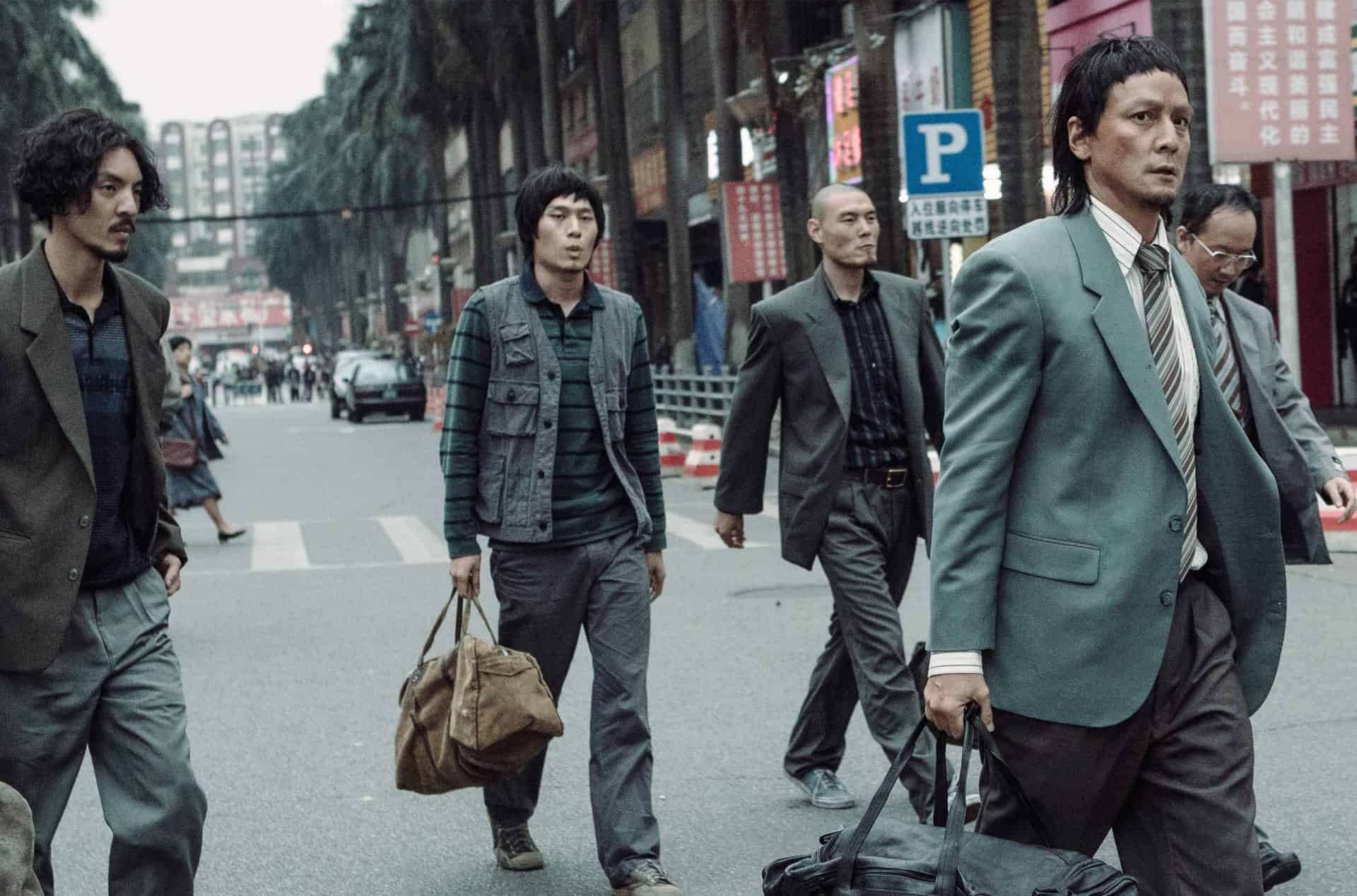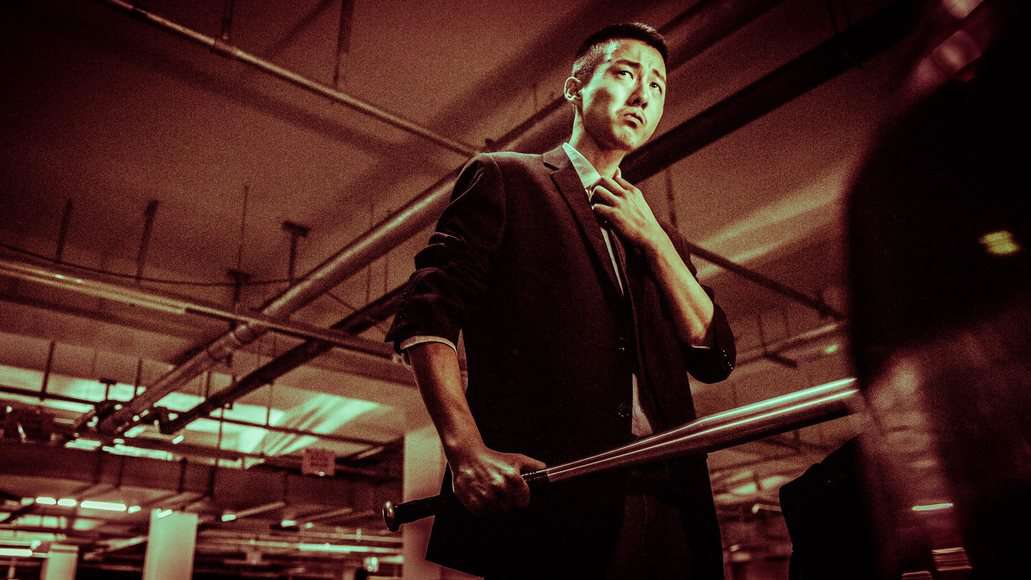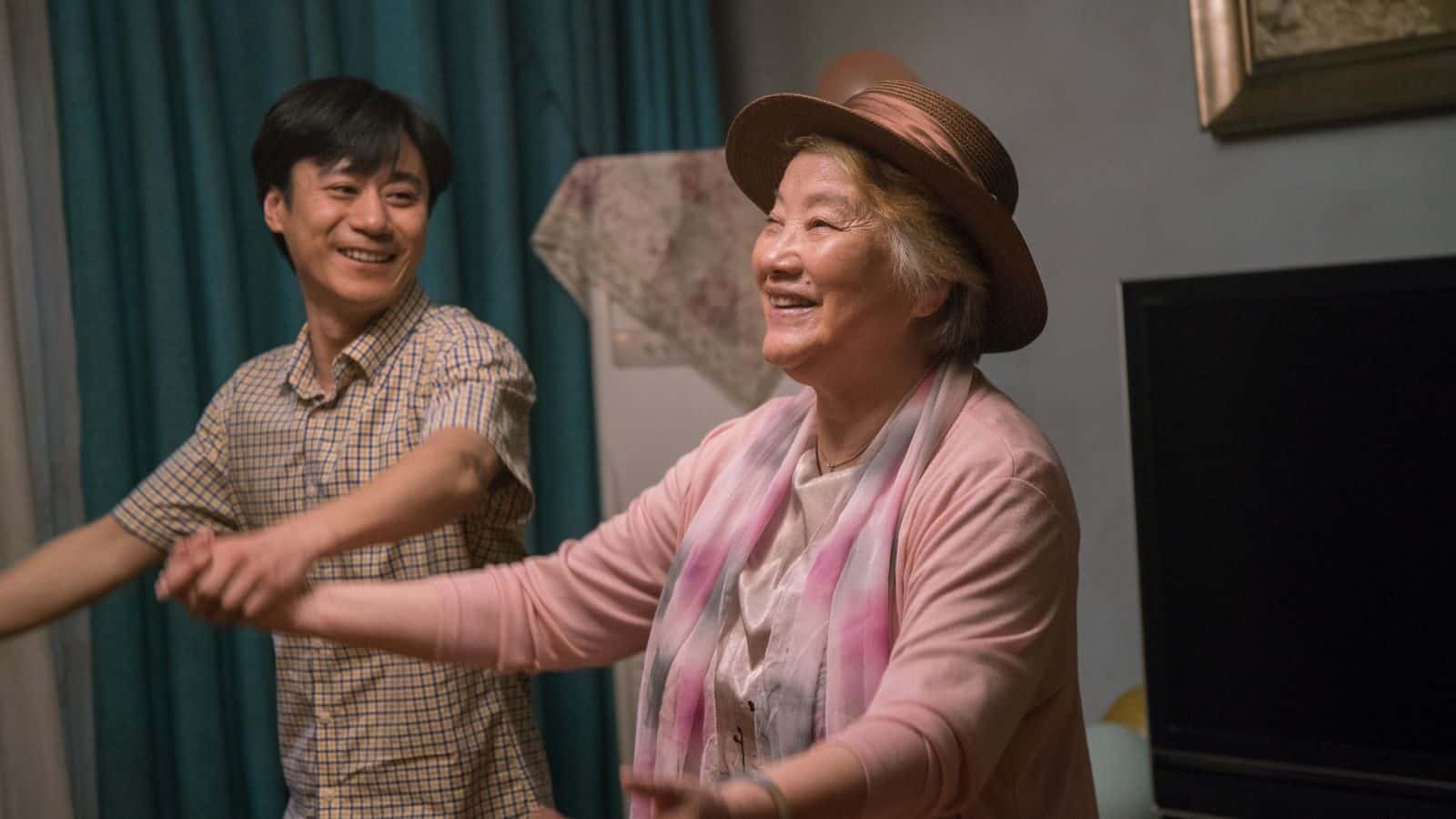Director Huang Ji has taken it upon herself to be the voice for China's left-behind children, children that have been left at home with relatives, as their parents move to the bigger cities in search of work and a livelihood. After her excellent debut film “Egg and Stone” in 2012, she reteams with leading lady Yao Honggui to bring us a tale of another left-behind girl as she goes through the trials and tribulations of growing up and a rude coming-of-age.
In the quiet, grim town of Meicheng in rural Hunan, high-schooler Lynn dreams of joining the police academy as she lives with her grandparents like a lot of the children in town her age, while her mother earns a living in southern China. A recent rape and murder has the town on edge, which has led to the mobile phones of the students being confiscated at school. Egged on by her best friend May, Lynn finds a unique market for selling those confiscated phones after quietly sneaking them out one by one. Through this, she comes in touch with a buyer and potential boyfriend Dawei, the son of the chief of Police, who she hopes can introduce her to his father who could then in turn give a recommendation for her at the Police Academy. With the money earned from selling the phones, Lynn and May spend their evenings at the local internet cafe as well as at a salon getting Lynn a makeover May insists she needs, an evening that possibly ends disastrously.

“Egg and Stone” was a very strong debut for both director Huang Ji and its star Yao Honggui. Basing it on her own experiences growing up as a left-behind child, Huang infused a lot of realism in that film. While that portrayed the sexual maturity of its lead character, with “The Foolish Bird” she delves deeper into the emotional tribulations, as well as societal issues such children that are growing up without a real parental figure face, in an age where social media has a strong part (positive and negative) to play in everyone's lives. She ably depicts the confused state of mind that some youngsters might face in differentiating between the right and the wrong when left to their own ways. Lynn knows that a criminal record for stealing the phones would reflect poorly on any chances she may have of getting in the Police Academy, but she does it anyway for her friend and later for the thrill. At the same time that she is sympathetic to the plight of the relatives that the children are left behind with, in this case the grandparents, Huang is also severely critical of the parents leaving their children behind, stopping just short of calling them selfish outright.
The film is not without its flaws though. At times, it comes across almost disjointed, with a few storylines not being fully developed. The part where Lynn is bullied, for example, doesn't really have any strong justification to it, or indeed a satisfactory conclusion either. This leads to the film feeling dragged at times further than it needs to be. A tighter edit would have certainly not been amiss. Otsuka also serves as the Director of Photography and he is effective in that capacity, capturing the tired, bleak nights of Meicheng with a unique beauty. Lim Giong's music is extremely sparingly used, almost to a fault.

Huang once again enlists mostly non-professional actors for most of the parts in the film. While Yao Fang and Xiao Liqiao get the most to do as Lynn's friend May and Dawei, it is Huang Zifan who shines the most as the grandfather. His quiet demeanour hides the pains of financially and emotionally supporting his grandchildren, which are portrayed on his weathered face delicately. But make no mistake, this is Yao Honggui's film! The camera does not leave her for the majority of the film and she is exemplary for someone who is only acting for the second time in six years, the comfort she feels being in Huang's film again evident. Her hair, which may hide half her face, manage to hide the joy, confusion, sorrow or anger that Lynn may otherwise feel. One would certainly hope that it does not take another six years for us to see her in another film.
At times, “The Foolish Bird” may seem purposefully slow and uneventful, to the point of being frustrating, but stay with it and look past its flaws and you will find a story that will compel as well as reward you with one of the finest young performances to come out of the Mainland in recent times.


